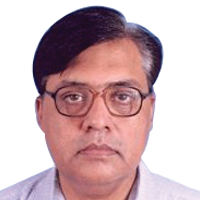NSDI Meeting
Speakers

NSDI, Department of Science & Technology
Goverenment of India

National Bureau of Soil Survey & Land Use Planning



India



National Informatics Centre

Survey of India
National Spatial Data Infrastructure is firmly rooted in the broader concept of National Information Infrastructure (NII) considered in the Clinton/Gore report and can be defined as the technologies, policies, and people necessary to promote sharing of geospatial data throughout all levels of government, the private and non-profit sectors, and the academic community.
The goal of this Infrastructure is to reduce duplication of effort among agencies, improve quality and reduce costs related to geographic information, to make geographic data more accessible to the public, to increase the benefits of using available data, and to establish key partnerships with Central and state government, academia and the private sector to increase data availability. It provides a base or structure of practices and relationships among data producers and users that facilitates data sharing and use. It is a set of actions and new ways of accessing, sharing and using geographic data that enables far more comprehensive analysis of data to help decision-makers choose the best course(s) of action.
The essence of the NSDI concept is that there is no master architect and hence there cannot be a single organization responsible for designing and implementing some kind of a blue print. Instead, we can imagine NSDI as an organic web of partnerships and relationships evolving purposefully within a given jurisdiction with sufficient inter connectedness of databases facilitating ubiquitous use of spatial data in the governance of the country.
The NSDI movement in India started with the constitution of a Task Force by DST on 30th October 2000, and its first meeting in December 2000 where the concept of Indian NSDI germinated. However, the Union Cabinet, through an executive order approved Indian NSDI in June 2006 and a great beginning was made to address the critical need for acquiring, processing, storing, distribution and improving utilisation of spatial data generated by various agencies of the Government of India
At the State level, State Spatial Data Infrastructures (SSDIs) are being set up in collaborative mode between NRDMS/NSDI and the State Governments for providing access to various geospatial data sets (e.g. cadastral plot boundaries, land ownership, groundwater, mining & geology etc.) acquired through State Funds. States like Karnataka, West Bengal, Haryana, Uttarakhand, Jammu & Kashmir, Odisha and Jharkhand etc. have been in the forefront of State SDI development.
NSDI is also instrumental in preparing and clearing of Expenditure and Finance Committee (EFC) proposal for National GIS. Cabinet note has also been prepared and sent to Cabinet by NSDI and is now very actively working on National Data Registry (NDR) component of NGIS and new action plan for the implementation of National GIS.
The NSDI Meeting during Geospatial World Forum 2017 will bring together its stakeholders to discuss updates on its various initiatives.